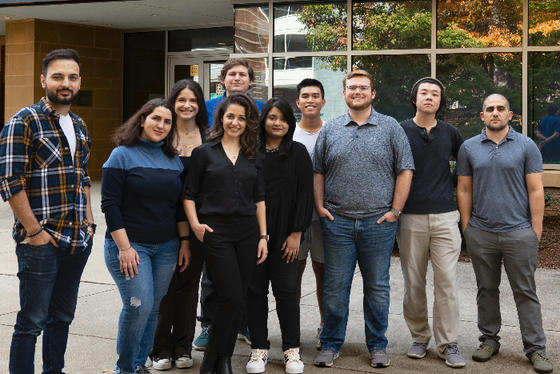In This Story
The hippocampus stores memories and makes connections between them, recognizing trends and helping the brain to learn and adapt to its environment. One Mason professor has joined a cross-university, interdisciplinary team to create a chip that can do the same.
Maryam Parsa, an assistant professor in electrical and computer engineering, is one of the four principal investigators on a three-year, $2.4 million project funded by the National Science Foundation to create chips that processes information like the hippocampus.

The project, DEJA-VU, involves four principal investigators: Maryam Parsa from George Mason University, Akhilesh Jaiswal from the University of Wisconsin, Madison (project PI), Babak Shahbaba, and Norbert Fortin both from the University of California, Irvine. Each collaborator will contribute their special skills to create 3D Solid-State Learning Machines for Various Cognitive Use-Cases. The project will model and quantify key information processing steps in the hippocampus. These key hippocampal functions will then be embedded on to solid-state computing chips through state-of-the-art hardware design techniques. A hippocampal-aware, hardware-aware algorithmic framework will augment the chip design efforts to enable online learning and decision-making in resource constrained environments.
“The project has potential disruptive applications in the field of robotics and autonomous systems spanning industrial, consumer and defense sectors,” said Parsa. She added, “The transformative potential of the project emerges from research conducted at three different levels of abstractions of neuroscience, hardware, and algorithm.”
Parsa’s portion of the project is $550,000 for the development of the hippocampal-aware, hardware-aware learning algorithm.
